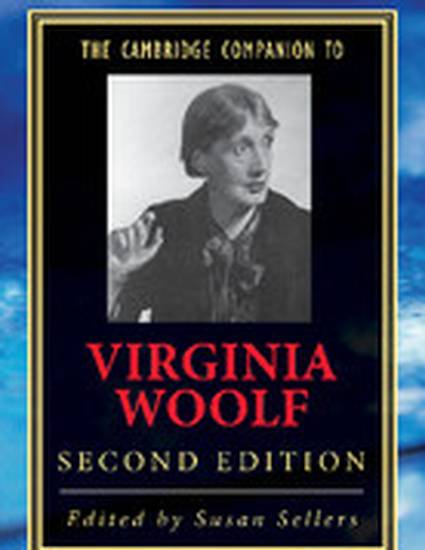
Contribution to Book
Finding a voice: Virginia Woolf's early novels
The Cambridge Companion to Virginia Woolf
(2010)
Abstract
On 26 July 1922, shortly after she finished writing her third novel, Jacob's Room, Virginia Woolf noted in her diary her feeling that, in writing this novel, she had 'found out how to begin (at 40) to say something in [her] own voice' (D2, p. 186). Critics have often followed Woolf's lead in regarding Jacob's Room as a starting-point of some kind. Many monographs on Woolf discuss the novels that preceded Jacob's Room (The Voyage Out (1915) and Night and Day (1919)) only in passing, or not at all, and where they are given more sustained attention they are often dismissed as 'apprentice efforts'. Woolf's comments appear to authorise developmental readings of her oeuvre, readings which assume that her early novels were attempts to work out who she was as a novelist before, in early middle age, she found her characteristic fictional voice.
But Woolf made something of a habit of announcing new beginnings. About ten years after she made the diary entry on Jacob's Room, shortly after the publication of The Waves, she wrote excitedly in her diary:
Oh yes, between 50 & 60 I think I shall write out some very singular books, if I live. I mean I think I am about to embody, at last, the exact shapes my brain holds. What a long toil to reach this beginning - if The Waves is my first work in my own style! (D4, p53)
Comments like these mean that we should treat her (and our) hailing of Jacob's Room as the definitive realisation of her fictional voice with a certain degree of reserve. Woolf’s statement raises as many questions as it answers: did she, then, misrecognise the voice in Jacob’s Room? Do we have different voices at different stages of our lives? Or is she writing about two separate phenomena in the two diary entries? Perhaps ‘voice’, the word she used in 1922, and ‘style’, the term she preferred in 1931, are not the same thing.
Keywords
- Virginia Woolf
Disciplines
Publication Date
January 1, 2010
Editor
Sue Roe; Susan Sellers
Publisher
Cambridge University Press
DOI
10.1017/CCOL0521623936.002
Citation Information
‘Finding a voice: Virginia Woolf’s early novels’, in The Cambridge
Companion to Virginia Woolf, ed. Sue Roe and Susan Sellers (Cambridge
University Press), 29-49.
